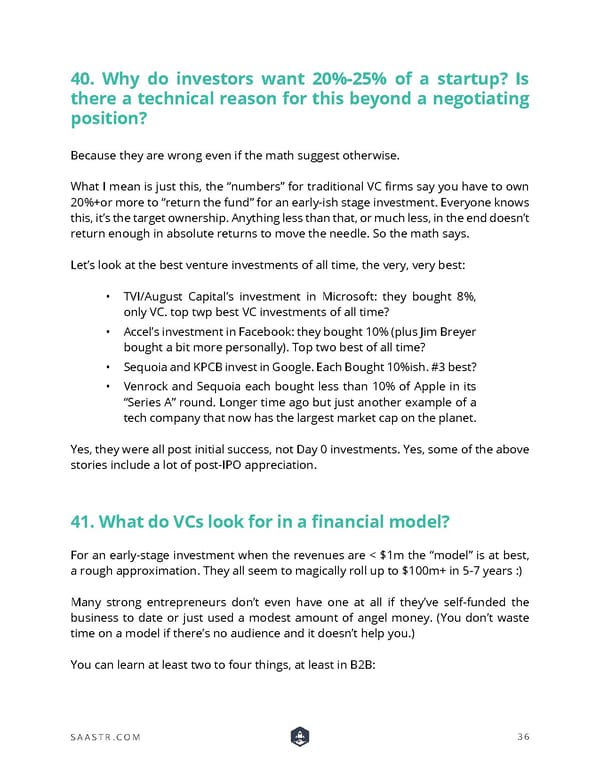40. Why do investors want 20%-25% of a startup? Is there a technical reason for this beyond a negotiating position? Because they are wrong even if the math suggest otherwise. What I mean is just this, the “numbers” for traditional VC firms say you have to own 20%+or more to “return the fund” for an early-ish stage investment. Everyone knows this, it’s the target ownership. Anything less than that, or much less, in the end doesn’t return enough in absolute returns to move the needle. So the math says. Let’s look at the best venture investments of all time, the very, very best: • TVI/August Capital’s investment in Microsoft: they bought 8%, only VC. top twp best VC investments of all time? • Accel’s investment in Facebook: they bought 10% (plus Jim Breyer bought a bit more personally). Top two best of all time? • Sequoia and KPCB invest in Google. Each Bought 10%ish. #3 best? • Venrock and Sequoia each bought less than 10% of Apple in its “Series A” round. Longer time ago but just another example of a tech company that now has the largest market cap on the planet. Yes, they were all post initial success, not Day 0 investments. Yes, some of the above stories include a lot of post-IPO appreciation. 41. What do VCs look for in a financial model? For an early-stage investment when the revenues are < $1m the “model” is at best, a rough approximation. They all seem to magically roll up to $100m+ in 5-7 years :) Many strong entrepreneurs don’t even have one at all if they’ve self-funded the business to date or just used a modest amount of angel money. (You don’t waste time on a model if there’s no audience and it doesn’t help you.) You can learn at least two to four things, at least in B2B: SAASTR.COM 36
 The Ultimate Guide For Scaling Sales & Raising Capital Page 39 Page 41
The Ultimate Guide For Scaling Sales & Raising Capital Page 39 Page 41